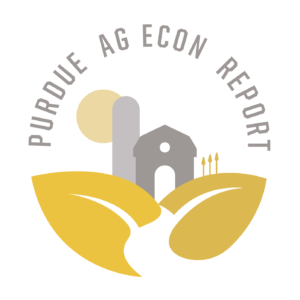Farm Bill Soon?
December 24, 2013
PAER-2013-09
Roman Keeney, Associate Professor
At time of writing, the Farm Bill is in a period where much can happen. So some of this information may be dated. You need to stay current with daily updates.
For the second straight year, Washington policymakers have failed to pass new farm legislation leaving farm operators and those they do business with in a state of limbo. With the start of fiscal year 2014 on October 1, authorization for previous farm legislation written in 2008 lapsed, triggering a reversion to farm subsidy laws first enacted in the mid-20th century. With the 2013 crop being the last that is subject to the 2008 law, farmers are left making plans for their 2014 crop with uncertainty about the rules and regulations that will govern the farm commodity system. In this update we examine a few of the possibilities for new farm law and its passage in the early part of 2014.
No new farm bill will surface before January 1, 2014. This is significant because that is the date when permanent law for dairy programs takes effect leading to a roughly doubling of milk procurement prices from their current levels. As soon as a month after that date grocery shoppers would begin to see those price effects in stores for milk, dairy, and related products. This looming deadline will surely provide the catalyst for action to extend the authority of the 2008 farm bill in some fashion through the early part of 2014.
Extensions of the 2008 farm bill ranging from one month to two years have been discussed, with the shorter being far more likely as a stop-gap to allow the Farm Bill conference committee to “buy-time” to finalize a new farm bill and present it to the each chamber for votes.
The conference committee for the new farm bill, with representatives from the Senate and House, has been working since October. Public statements from committee members have been positive describing progress but have offered no clear indications about areas of compromise between the disparate House and Senate passed versions of the Farm Bill. Prior to the committee convening, dairy support programs, the payment basis (acres planted versus historical), and nutrition (SNAP, food stamps) were noted as the most difficult areas to be reconciled between the two versions of the bill, and also the last areas that the committee would begin to negotiate over.
As we close out the year, it seems that the most farm and agribusiness decision makers can hope for before the end of the year is continued signs of progress and a declared timeline for the conference committee to finish its work in early 2014. This could be dovetailed with a short extension of the 2008 Farm Bill into the new year to avert the dairy price hike. As with many things, the most hopeful outcome is not synonymous with most likely and the final outlook for a new farm bill is murky at best.
News reporting on the farm bill process offers some reason to believe that the final farm bill will look more like the Senate version that has the administration’s support, featuring smaller reductions in nutrition assistance and a relatively fixed basis for subsidy payments. But, following a fall session that featured a government shutdown over failures in the budget negotiations it would be foolish to assume that entrenched positions on reducing outlays in the farm bill have softened and that the farm bill will smoothly move to passage. If Congress resolves the fight over the budget and debt ceiling, this may provide better opportunity to compromise and get the new farm bill that now seems likely to come out of conference committee.
Farmers will be making their planting decisions for the 2014 crop year with the uncertainty of markets and weather. Having either a new farm bill or an extension of the 2008 farm bill would at least provide some certainty regarding governmental support. Congress has been hard to predict, but chances are growing they will make some key decisions on agriculture by the end of January.
